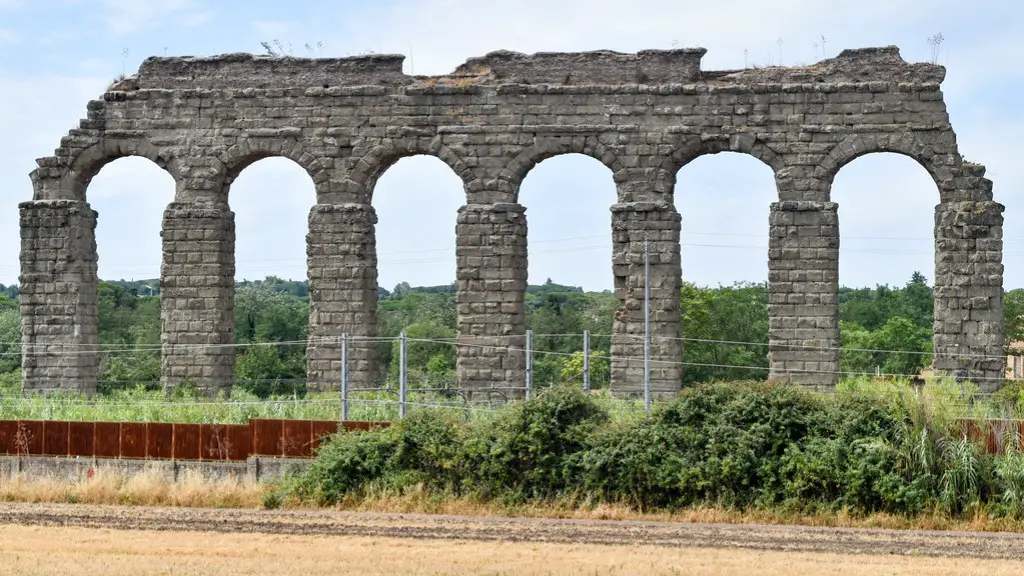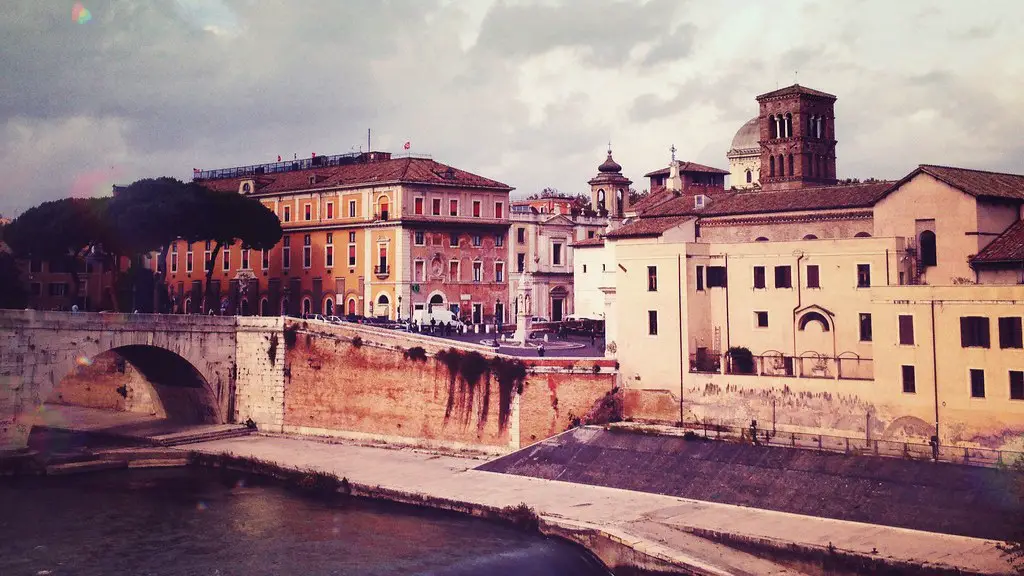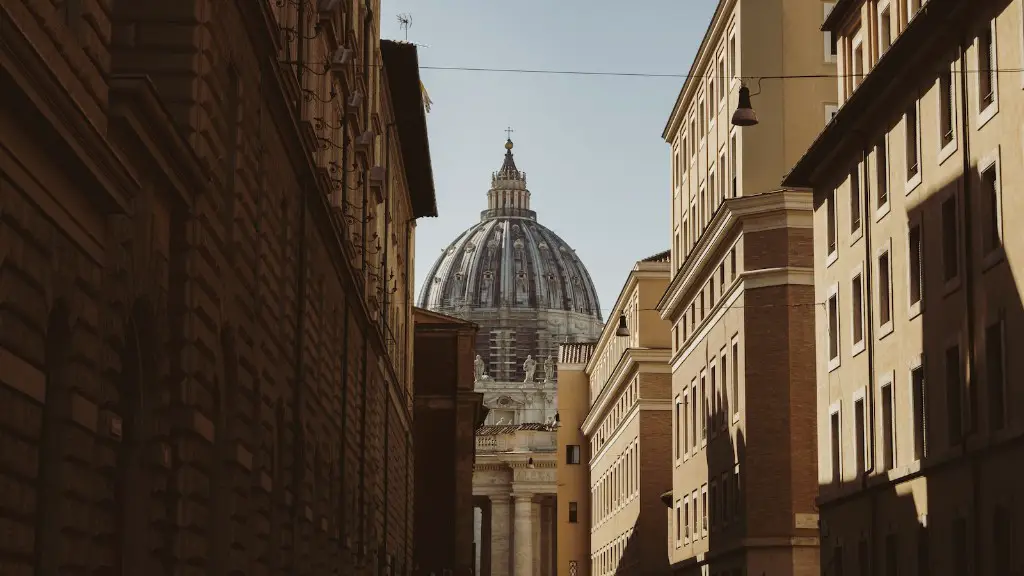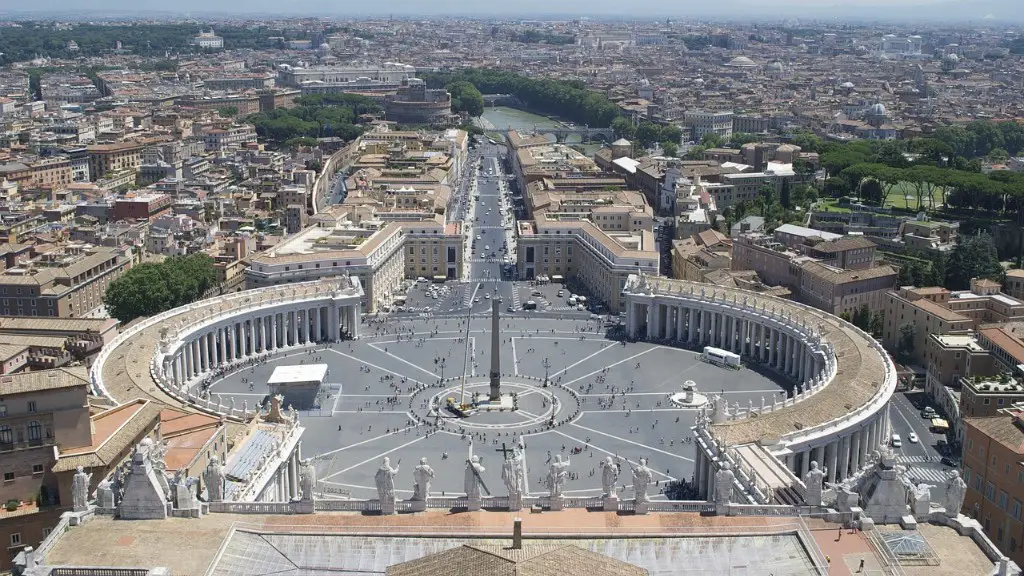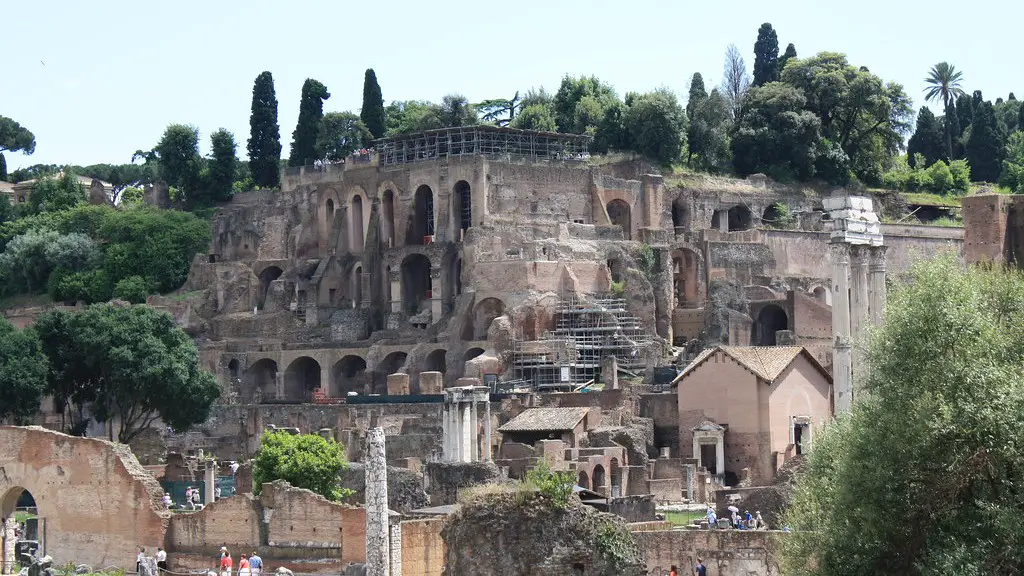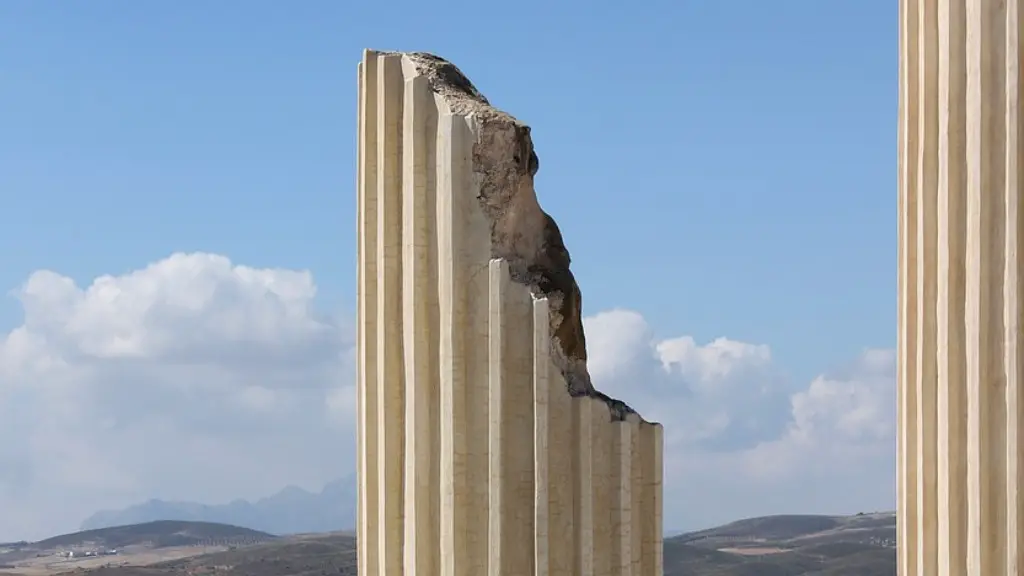The government of ancient Rome was one of the most sophisticated of its time. Its structure was complex and its processes comprehensive, which allowed Rome to thrive as one of the greatest empires in the history of the world. From the early Republic period, up until the inception of imperial rule, Rome’s government was marked by ambitious law-making and a focus on fairness.
Originally, the government of Rome was characterized by a strong Senate and an equally powerful Assembly. The popular voting by the citizens was crucial in these law-making processes and ensured a balanced representation. The Senate was responsible for managing foreign and internal policy and also had the power to declare war and peace. It was made up of members of noble and patrician families, though it was possible to move up the ranks with sound leadership and financial acumen.
The early Roman Republic was, however, constantly beset by a change in power struggles between the Plebeian and the Patrician classes. The former, who were members of the common public, vied for a better representation in government and this led to the Celstine Laws, which laid down an equal basis for the rights of all Roman citizens, no matter their rank or class. This laid the foundations for a strong democracy and became the basis of Roman law.
The period of the Roman Republic, which lasted from 509 BC to 27 BC, laid the foundation for the Roman Empire, which followed. During the republic, the citizens voted for two consuls who had almost dictatorial power and served as military and civil leaders. This system was replaced by the Imperial rule of Augustus, who initiated the Roman Empire and known as the “First Citizen”. Under this system, the government of Rome was centralized, with power held by one person, who was able to make administrative and judiciary decisions. This period saw the glory days of Rome, and its system of government was an inspiration for many future kings and rulers.
In spite of its many ills, the Roman government was remarkable for its implementation of public works, roads, sanitation systems and aqueducts, amongst many other accomplishments. The laws of the republic were responsible for making Rome free and also led to a period of great wealth, as trade and commerce flourished. As a society, the Romans were characterized by justice and fairness, and all citizens were considered equal, no matter their rank or fortune.
Taxation System of Ancient Rome
One of the most significant aspects of ancient Rome was its taxation system. This was a highly complex affair, and such nuances can still be seen in modern tax code. Ancient Rome’s taxation system was based mainly on wealth and property, as opposed to today’s systems which focus mainly on income. Taxes were collected for a number of purposes, such as infrastructure, public works and military campaigns. Not only did taxation serve as a source of revenue for the government, but it also acted as a means of distributing wealth amongst the population.
What set the taxation system of Rome apart from its contemporaries was the fact that it was highly progressive. This meant that those who had more to give paid a higher proportion of their wealth to the state, while those who had less to give paid a lower proportion. This is a system that has been embraced in various forms by many countries over history, indicating the legacy of Rome’s government.
One of the main experts of Roman taxation is Professor Rebecca Langston-George, who has written extensively on the subject. She recently said, “The progressive nature of the taxation system was one of the main factors in Rome’s ability to rise to power. It not only provided a source of revenue for the state, but it also served to create a society that was based on fairness and equality. This is a system that remains relevant to the modern world.”
Education in Ancient Rome
Education was another major component of ancient Rome’s government. All citizens, from noble families to the lower classes, were given access to education, though this naturally differed by class. The wealthy had access to the finest tutors and teachers, while the poor had to make do with tutors who could teach them basics such as reading and writing.
While the education system in Rome was by no means equal, it was still comprehensive compared to the standards of the time. Boys were taught law, literature and rhetoric, while girls were taught music, arts and philosophy. This allowed the society of Rome to foster art and culture, which went on to influence the modern world.
Dr. Lewis Beynon, a noted expert in Roman education, said, “Roman education had two main goals: to inculcate a sense of civic duty, and to equip citizens with the skills necessary to participate in the life of their society. It was a system that was based on fairness and intellectual growth. While it was not perfect, it was a remarkable example of a civic society striving to create a social order based on reason and intelligence.”
Justice System of Ancient Rome
The justice system of ancient Rome was one of the most sophisticated of its time. The Romans had a clear-cut view of justice and did their best to uphold it in all areas of public life. All citizens were equal under the law, though the wealthy and the powerful had more sway in terms of legal representation and the courts. This made justice in Rome far from perfect, but it was still a system of justice that sought fairness for all.
The Roman court system was divided into two distinct courts – the Centumviral court, which was responsible for civil matters, and the Praetorian court, which handled criminal matters. The courts were presided over by trained judges, and the process of justice was very systematic. Punishments could be severe, but they were seen as necessary, in order to ensure justice and fairness.
Professor Elliott Tulloch is an expert on the Roman justice system. He recently stated, “The Roman justice system was highly advanced for its time, though of course it was far from perfect. It still provided a model of fairness and equity that still resonates today. It remains an inspiring example of a justice system based on reason and equality, as opposed to arbitrary and capricious rulings that can be found in some traditional systems.”
Religion in Ancient Rome
Religion also played an important role in the government of ancient Rome. The state had a state-sponsored religion, as well as a large pantheon of gods and goddesses to whom the people could pray. This was seen as a way to ensure the continuation of the Roman state and its people. Religion was thus used as a tool to unify the different classes and create a sense of solidarity amongst them.
The Romans believed that the gods had a vested interest in the success of the Roman people and state, and so their favor was sought by means of sacrifices, offerings, prayers and festivals. This was also seen as a way of ensuring that the gods kept the Roman people safe from danger, as well as from their enemies. In this way, religion was used as a way of maintaining order, and as a way of asserting Roman power and control over its citizens.
Professor Maria Curran is an expert on Rome’s religion. She recently said, “Religion had a vast influence on the Roman people and its government. The gods were seen as protectors and providers, and they were greatly revered by the Romans. The Roman people were unified by their shared belief in their pantheon of gods, and this contributed to the stability of the Roman state and its success over centuries.”
Political Ideology in Ancient Rome
The political ideology of Ancient Rome had a major influence on its government. The ideology was based on a strong sense of patriotism, as well as a belief in the superiority of the Roman people. This was reflected in its legal code, as well as its religious beliefs.
The idea of a unified Roman Empire was an essential part of its political beliefs, and so a sense of identity was fostered by the Roman government. This was done through art, literature, education and religion. This was also reflected in the laws of the republic, which ensured that citizens had rights and freedoms that were equal to all.
Dr. Sophia Spiro, an expert on Roman politics, said, “The political ideology of ancient Rome was one of its driving forces. Its beliefs in patriotism and unity provided the Roman people with a strong sense of identity and purpose. This sense of identity was one of the main factors that allowed it to be one of the greatest empires in history.”
Legacy of Ancient Rome
The government of ancient Rome has left a lasting legacy that can still be seen today. Its system of justice, taxation and education were all far ahead of its contemporaries and had a significant impact on the development of modern systems. Its laws, religion and political beliefs all contributed to the success of the Roman state and the sense of stability and unity it provided.
The legacy of Rome can also be seen in its impressive architecture and remarkable public works projects. Its aqueducts, roads and monuments all remain to this day and serve as a testament to the strength and ambition of the Roman people. Rome was, and is, an inspiration for many across the world, and its government and its people continue to leave an imprint on the modern world.
Professor Robert Thomas is an expert on the legacy of Rome. He recently stated, “The legacy of Rome is still visible, even 2000 years later. Its system of government was remarkable, and the achievements of its engineers, artists and scholars remain to this day. Rome was one of the most advanced societies in its time, and its influence can still be felt around the world.”
